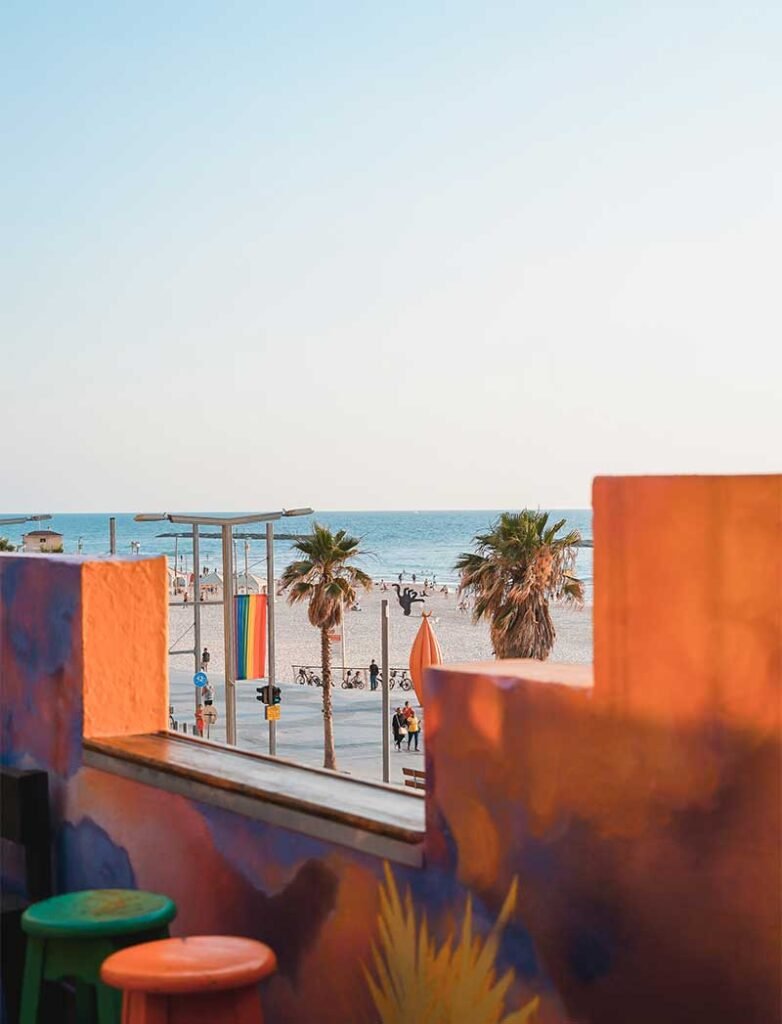We explore 10 Basic Hebrew Phrases that even the complete beginner can use on their next trip to Tel Aviv.
I must confess, after living in Israel for over six years, by nobody’s standards am I fluent in Hebrew. Yes, I’ve been to the Ulpan (Hebrew Learning School) several times and I even worked in an office for three years where the staff would speak Hebrew to me pretty much 99% of the time. So it’s kind of astonishing I’m not fluent in this language.
However, while I’m certainly not an expert in the Hebrew language, I am an expert in getting by with the basic Hebrew phrases I have, as even with my limited amount of Hebrew there is rarely a situation where it’s an issue.
If you’re a tourist it’s even less of a problem; nobody in Tel Aviv will be expecting you to know Hebrew. However, they always love it when tourists make an effort to speak their language; it’s almost guaranteed to make them smile as you awkwardly mutter select words, trying to sound polite. You’re almost certainly saying it wrong, but it’s cute and it makes them more open to you.
Don’t Worry About Saying Things Wrong
I’ve had some embarrassing mispronunciation situations. In Hebrew, the word for cup is very similar to the derogatory term for female genitalia. Getting the two confused can make you look like an idiot, but it’s all part of the learning process. Humiliation is a great teacher.
Advantages of Speaking Basic Hebrew Phrases
While the general population in Tel Aviv does speak English (and often at a better level than native English speakers), having a selection of Hebrew phrases in your back pocket may be the difference between getting good service or bad service in a café; it may be the difference between getting a good deal or a bad deal in the local markets. Making an effort has got its advantages.
Basic Hebrew Phrases
To help you make the most out of your next trip to Tel Aviv, I’ve compiled a list of 10 basic Hebrew Phrases that you can easily start using when you’re out and about, having fun and exploring Tel Aviv.
1. Toda / Toda Raba
Pronunciation: Toe-da / Toe-da ra-ba
Hebrew Spelling: תודה / תודה רבה
Meaning: Thanks / Thank You Very MuchThe word ‘toda’ is arguably the most important word in the Hebrew language. It means “thanks” and you can add to it by saying ‘toda raba’, which means “thank you very much”. This Hebrew phrase is the simplest way for you to be polite, show gratitude, and be respectful to those serving you. It’s a short word that goes along way. Never underestimate the power of being thankful.


2. Lehitraot
Pronunciation: le-heetra-ot
Hebrew Spelling: להתראות
Meaning: Loose translation – See You LaterThis is probably one of the most common phrases spoken in any language, so you’ll have many opportunities to use it and perfect its pronunciation. Every interaction you have can end in a quick and cheerful ‘lehitraot!’
3. Shalom
Pronunciation: shah-lohm
Hebrew Spelling: שָׁלוֹם
Meaning: Loose translation – Hello; Bye. Direct translation – PeaceThe word ‘shalom’ is definitely about context more than meaning, as when people use it, they rarely mean its direct translation of “peace”. It is another way of greeting someone and it can be used to say either goodbye or hello.
An extension of this term is ‘Shabbat shalom’, which is a greeting used to announce the weekend in the Hebrew calendar. Roughly translated, it means – “Have a peaceful weekend”.
4. Boker Tov
Pronunciation: book-er tuv
Hebrew Spelling: בוקר טוב
Meaning: Good MorningThis is a friendly way to start your day and like in English, with the phrase “good morning”, it is often shortened to just “morning”. The same with ‘boker tov’, which can be always be shortened to just ‘boker’.
5. Chag sameach
Pronunciation: Hag sah-MEY-akh
Hebrew Spelling: חג שמח
Meaning: Happy HolidaysIt’s very likely if you’re visiting Tel Aviv, it will be in a time of national holidays, so this phrase will be relevant to you at those times. This basic Hebrew phrase replaces commonly used Hebrew terms such as ‘Shabbat shalom’, ‘lehitraot’ and even ‘boker tov’. While the phrases can be used together without any problems, people will often use ‘chag sameach’ in place of them.
‘Chag sameach’ is a seasonal greeting; use it like you would use the term “Merry Christmas”. During the festivities, we are more inclined to use a seasonal greeting over the normal terms that we usually resort to for basic interaction. Chag sameach doesn’t relate to any specific national holiday; it is more of a one-size-fits-all kind of phrase, much like in the United States where people often say “Happy Holidays” to one another.
6. Bevakasha
Pronunciation: Beh-vak-a-sha
Hebrew Spelling: בבקשה
Meaning: Loose translation – You’re WelcomeAs a tourist to Tel Aviv, you’ll usually get away with using ‘toda’ for most of your interactions, but if you want to step up your game, ‘bevakasha’ is the perfect way to do so. If someone says ‘toda’ to you, ‘bevakasha’ is the perfect response.
7. Ani mediber Englat
Pronunciation: A-nee Med-e-ber En-glayt
Hebrew Spelling: אני מדבר אנגלית
Meaning: I Speak EnglishThis is perhaps the most polite way you can tell a local that you have not got the slightest clue what they are saying. They will understand, smile at your inevitable mispronunciation, and automatically engage with you in English or, in some cases, broken English; either way, it’s a win-win situation мультитул купить. You got to practice one of your basic Hebrew phrases and keep your dignity, and the local got to smile. Hopefully, you’re all smiling.
8. (The name of your country in Hebrew)
Often, saying the name of your country in your language means nothing to a local Tel Avivian who has not got a high level of English. For instance, I often tell Israelis that I’m from Ireland, only for them not to have a clue what I’m talking about, so I quickly change my pronunciation to Irr-Land ghostwriter österreich. Straight away they know where that is!
Just do a quick Google search for the “Hebrew pronunciation of (your country)” and the correct term will come up.
9. Ze
Pronunciation: Zeh
Hebrew Spelling: זֶה
Meaning: ThatThis may be your secret weapon in your arsenal of basic Hebrew phrases. It means “that” and you can use it when you point at stuff to emphasize what it is you are pointing at. For instance, in a shop, if you want to ask for something behind the counter, point your finger like the magic wand that it is and cast your spell ’ze‘ and the shopkeeper will know exactly what you want ghostwriter finden. Local Israelis generally don’t speak like this, but it’s very effective. I often take out my magic wand in shops, especially when ordering falafel.
10. Efo sherotim?
Pronunciation: ei-fo sher-O-teem
Hebrew Spelling: איפה השירותים
Meaning: Where is the Toilet?When out and about, the last thing you want is to get stuck for a toilet and it just might lead to a disaster if the very thing that prevents you from getting to a toilet in time is your inability to ask where the toilet is плед купить. This phrase is a lifesaver, as sometimes you just won’t have time to find someone who understands your English. Being able to whip out an ’Efo sherotim?’ may be just what you need for someone to point you in the right direction.
Basic Hebrew Phrases
For more simple Hebrew phrases that you can use on your next visit to Tel Aviv, check out these Common Hebrew PhrasesThere are endless Hebrew phrases, many of which are more complex than the ones mentioned above. Whether you choose to challenge yourself enough to speak these or not is up to you. The best phrase we can teach you isn’t even made up of words, and it means the same in Hebrew as it does in any other language and that is to smile, make eye contact, and always be respectful of others постільна білизна від виробника. These are the phrases of the universal language that is body language and everybody, to some degree, is already fluent.
Which basic Hebrew phrases would you encourage a first time visitor to Tel Aviv to learn? Let us know in the comment section below!Article by Scott D. Renwick

